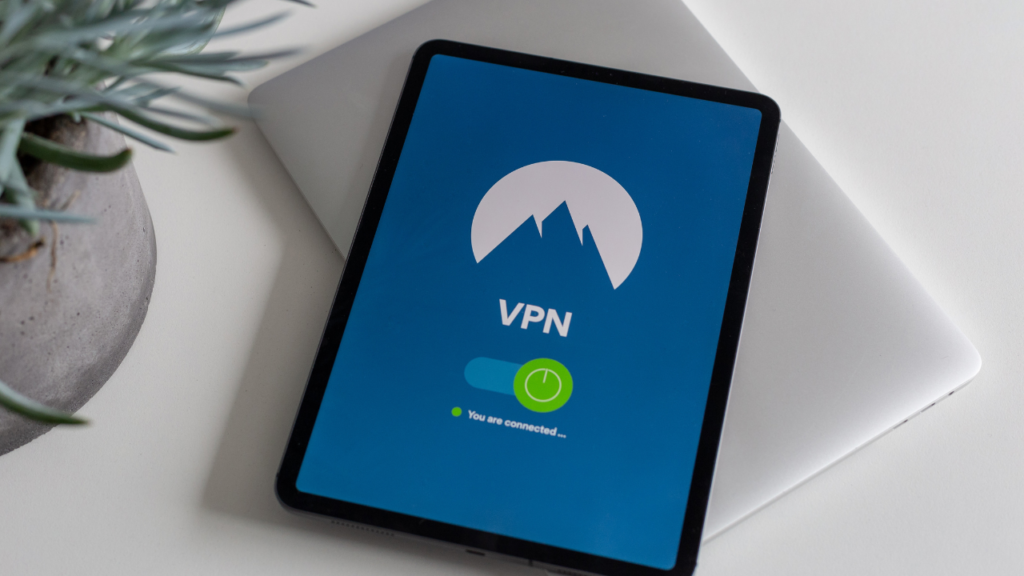Free vs. Paid VPN: An Important Choice to Make
DataProt is supported by its audience. When you buy through links on our site, we may earn a commission. This, however, does not influence the evaluations in our reviews. Learn More.
It’s 2022, and we’re well past the point where using a virtual private network (or VPN for short) is just a niche-use novelty. VPNs have joined the list of must-have cybersecurity products on every computer, joining the long-standing veterans: antivirus programs and firewalls.
VPNs serve a double role – they safeguard your privacy and security while allowing you to access geo-locked sites and region-specific streaming libraries. For privacy-conscious people, there’s no reason not to use one.
All VPN users have to make a choice: free vs. paid VPN. It’s no surprise that a paid VPN is better in almost every way, but is paying for a VPN subscription a luxury or a necessity these days?
This article will take a deep dive into the advantages and disadvantages of using a free VPN. We’ll talk about when (if ever) it is justifiable to stick to the free version without putting your identity and data at risk.
How Do Free VPN Providers Earn Money?
A question that’s important to answer right at the start is “How do providers of free VPN services earn money?” After all, people seldom offer services for free, let alone companies.
Why do VPNs cost money in the first place? Because these providers need to run and manage a global network of servers, develop proprietary apps (and sometimes their own protocols), and offer customer support to their users. This can all be very costly, with costs rising exponentially the larger your VPN network and user base are.
These are some of the main reasons why companies charge for providing VPN services. A few reputable paid VPN providers also offer a free tier of services. However, these are usually very limited in terms of bandwidth and features and typically serve as a free trial meant to entice you to buy the full version.
This still leaves us with the question of how free-only VPN companies generate revenue. There are two main ways they do so: through advertisements and selling your information to third parties.
While advertisements are annoying, they’re still significantly less harmful to users than data selling. Ultimately, they’re both factors to consider when pondering whether you should spend money on a VPN subscription. Hence, we’ll go into these points in more detail below and cover other things you need to keep in mind when making this decision.
Disadvantages and Risks of Using a Free VPN
Now, let’s take a look at the risks and disadvantages of using a completely free VPN service. After going through all these potential pitfalls, we’ll examine whether (and when) using a free VPN is wise.
Security
One of the primary uses of VPNs is to keep your browsing habits, location, and identity secret from malicious parties, ISPs, and inquisitive government bodies. The way VPNs achieve this is through a process called tunneling,
Tunneling represents a processor in which your data gets repackaged, encrypted, and routed through a VPN server before reaching its destination, such as a website you’re trying to visit. Thanks to tunneling, your actual IP address and location are masked, and the real data flow (what you actually do online) is hidden from view.
VPN protocols play a vital role here, as they set the tunnel connection rules that determine packet size, encryption, and other essential metrics. The problem with free VPN services is that they don’t disclose which protocol they’re using or limit you to older, more vulnerable protocols.
Most paid, modern VPNs let you use the OpenVPN and WireGuard protocols, which offer the pinnacle of security and speed available these days. On the other hand, older protocols like PPTP are considered obsolete due to their glaring security vulnerabilities.
Therefore, in case a free VPN provider limits you to the PPTP protocol, your online activity won’t be hidden all that well since any determined actor could easily break its VPN encryption.
Even worse, some providers use absolutely no encryption at all. Their only purpose is to spoof your location so you can access a geo-restricted site. Your browsing activity, for example, will be left completely unprotected.
Not only do some VPN providers provide no encryption for your data, but they sometimes outright sell it to third parties as well, which takes us to our next point.
VPN Privacy
The sacred rule of the VPN world is to look for the so-called “no logs” providers. This means that the provider won’t keep any user-identifiable information such as real names/IP addresses and browsing history on its servers. Still, even with no-logs providers, VPN usage can still be tracked in some cases.
In the case of cybercriminals hacking the company’s database or a government agency hitting them with a search warrant, the provider will have no sensitive user information to provide.
Finding such a provider is practically impossible due to government rules and regulations for operators in many Western countries. This means that if you’re accessing censored data or content deemed illegal, you could be discovered and legally prosecuted.
As we mentioned, the fact that some VPNs sell your private and browsing data to third parties also poses a significant privacy risk. This data can be used to hit you with targeted ads, plant tracking cookies, and, in extreme cases, even jeopardize your online accounts.
Privacy should definitely be your main concern when choosing between a free VPN vs. a paid VPN app. That said, you can always use a free VPN from a trusted provider like TunnelBear or Windscribe. The free tier that these VPN services offer has been tested as safe, with the providers limiting you in other areas – bandwidth and features.
Bandwidth
The free versions of some paid VPNs and most free ones limit your VPN bandwidth. That means that you’ll have limits on how much internet data you can route through the virtual private network servers per day, week, or month.
You won’t find bandwidth limits too restrictive if you plan to use the VPN for simple browsing or the occasional video. However, conducting bandwidth-intensive activities such as streaming, torrenting, and gaming will be nigh impossible with these bandwidth limits.
Streaming
VPN streaming with free services is affected by two factors: bandwidth limits and VPN protocols. Streaming videos, especially in HD, eats up a hefty amount of bandwidth, well over the typical traffic limits that free VPN providers offer.
Secondly, the limited choice of VPN protocols pretty much prevents you from unblocking region-specific libraries on platforms like Netflix. These big streaming platforms play a game of cat and mouse with top-tier VPN providers, constantly updating their systems to prevent VPN users from accessing libraries meant for specific countries and regions.
Therefore, only highly capable VPN solutions relying on modern protocols can actually help unblock Netflix or Hulu. Streaming on these platforms with a free VPN is practically impossible, whether you’re using a free tier of a paid service or a completely free VPN.
VPN Torrenting
Torrenting with free VPN services is even harder than streaming. First of all, a VPN provider needs to have P2P-ready servers to enable seamless torrenting.
Furthermore, the lack of encryption and other privacy/security measures on free VPN solutions means that you might face legal challenges. This is because torrenting (or torrenting copyrighted material, at least) is illegal in some countries, with ISPs keeping an eye out for all torrenting activity.
Limited Features and Overall Usability
The benefits of using a paid VPN are that you get access to a complete feature set, unlimited bandwidth, and a much more extensive server network. With free VPNs, all of these things get significant limitations.
Free users are usually limited to a small portion of the available servers, with their connection speed being slowed down and access to advanced features like Multihop restricted.
Therefore, using a free VPN means giving up a lot in terms of features and general user experience.
Should You Use a Free VPN and When?
Ok, so with all this in mind, should you use a VPN without a subscription? The answer is yes, but only under certain conditions.
The first step is to make sure you’re with a trusted VPN provider. We’ve already mentioned a few paid VPN companies that offer a free tier of service. That’s not to say that all completely free providers are shady, as there are trusted companies in that niche as well, but you’ll have to be more careful.
Secondly, because of the lack of high-end encryption and advanced VPN protocols, you should abstain from certain activities when using a free service. This includes things like accessing censored or illicit material, as well as torrenting.
The best use case for free VPNs is browsing. Specifically, when you need to access sites not available in your country for one reason or another. With trusted providers, you can be sure that your online activity will be protected from prying eyes.
Final Thoughts
Hopefully, after reading this article, the answer to the question “Do you have to pay for a VPN?” is a bit clearer. To summarize: free VPNs are riddled with issues, but they can still be useful in certain situations.
In the end, it boils down to how much you need a VPN in the first place. If you use it for the occasional browsing session, you’re good with a free, limited VPN. On the other hand, if you plan to stream content, play video games or want to keep your online activity private, a paid VPN service is a must.


